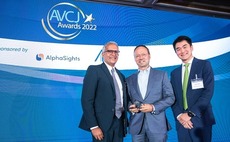
Korea buyouts: Who's selling?
Thanks to a steady stream of large cap deals, Korea accounts for a growing share of Asia buyout activity. But can this trend be sustained?
If and when the sale of Homeplus, Tesco's South Korea retail operation, goes through, it could nearly double the $6.3 billion that private equity investors have deployed in the country so far in 2015. Even in the context of Asia as a whole it is a huge deal - and would inflate the cumulative value of buyouts in the region this year by as much as one quarter.
Korea has emerged as increasingly significant player in the Asia buyout landscape in recent years. In 2011, 12 deals were announced worth $481.5 million, or 2% of the regional total. Over the next three years the share jumped to 10%, 18% and then 27%. At $2.3 billion across 12 transactions, the 2015 figure is off pace, but should the Homeplus sale reach an agreement Korea would account for 39% of Asian buyouts, based on investment activity to the end of August.
The question is can this run be sustained. "The level of M&A activity in Korea continues to grow but I don't know how much of a role private equity can play a role in that," says Scott Hahn, CEO of domestic PE firm Hahn & Co.
Of the approximately 2,100 private equity investments in Korea since 1999, 13 have been $1 billion or more and all bar five have been announced in the last three years. They offer an interesting blend of corporate divestments, restructurings led by funds set up to do a specific deal or with ties to large domestic financial institutions, and the odd growth investment.
What is notable about each of the three largest deals completed in the last two years is that the seller was foreign: Hahn & Co. led the acquisition of Halla Visteon Climate Control (HVCC) from US auto parts maker Visteon Corp; Carlyle picked up ADT Caps because Tyco International, which is also US-based, wanted to offload the asset; and MBK Partners bought ING Life Insurance from Europe's ING Group.
The level of M&A activity in Korea continues to grow but I don't know how much of a role private equity can play a role in that - Scott Hahn
In numerous cases, the sale is driven by difficulties at the parent level rather than within the Korean business. For example, ING was obliged to sell most of its Asian operations as a condition of its bailout agreement in 2008, while Tyco's exit from ADT was part of a broad restructuring initiative. The Homeplus transaction would add another to this list - UK-based Tesco is divesting the asset to strengthen its balance sheet following a series of profit warnings.
As a result, the much-talked-of spin-outs from chaebol companies under pressure from creditors to pay down debt are not making a mark at the top end of the spectrum. But industry participants warn against overplaying the foreign seller angle.
"I don't believe the volume of businesses being sold by foreign corporate owners [or strategic investors] is necessarily increasing, however, the attention to this subject has increased because these businesses are so large," says Michael Chung, managing director at Morgan Stanley Private Equity Asia.
Moving further down the list, deals involving domestic sellers far outweigh the foreign, although the chaebol spin-outs fall into two categories. First, there are genuine PE buyouts such as MBK Partners' acquisition of water purifier manufacturer Woongjin Coway. Second, there are deals in which the PE firm is junior partner to a strategic player. For example, Jabez Partners participated in the purchase of Green Non-Life Insurance in 2013 but the deal is said to have been led by domestic beef cooperative.
Opinion is divided as to whether the restructuring opportunity is living up to its hype. Hahn & Co's Hahn says no, adding that the low interest rate environment gives chaebols funding options that allow them to avoid asset sales. "With this much liquidity in the economy, there are many iterations before you have to sell to private equity," he says.
However, Jason Shin, managing partner at Vogo Investment, is confident it will remain a consistent source of deal flow - if not at the large end of the spectrum then at least for deals in the $50-300 million range. "There are always going to be chaebol groups in distress. We don't know when it's going to happen, but it's going to happen," he says.
Latest News
Asian GPs slow implementation of ESG policies - survey
Asia-based private equity firms are assigning more dedicated resources to environment, social, and governance (ESG) programmes, but policy changes have slowed in the past 12 months, in part due to concerns raised internally and by LPs, according to a...
Singapore fintech start-up LXA gets $10m seed round
New Enterprise Associates (NEA) has led a USD 10m seed round for Singapore’s LXA, a financial technology start-up launched by a former Asia senior executive at The Blackstone Group.
India's InCred announces $60m round, claims unicorn status
Indian non-bank lender InCred Financial Services said it has received INR 5bn (USD 60m) at a valuation of at least USD 1bn from unnamed investors including “a global private equity fund.”
Insight leads $50m round for Australia's Roller
Insight Partners has led a USD 50m round for Australia’s Roller, a venue management software provider specializing in family fun parks.








